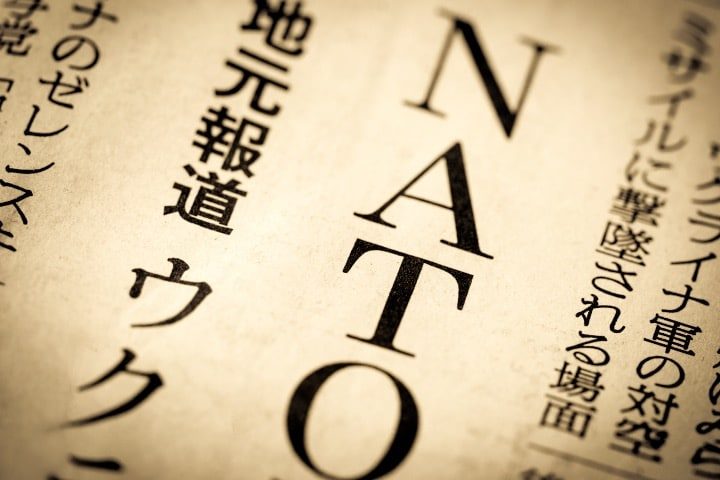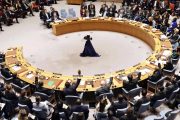
On June 6, China’s Foreign Ministry spokesman Wang Wenbin claimed that most Asian countries are against NATO’s eastward expansion and creation of military replicas in the Indo-Pacific region, given that such actions provoke bloc conflicts:
Asia lies beyond the geographical scope of the North Atlantic and has no need for a replica of NATO. However, we have seen NATO bent on going east into this region, interfering in regional affairs and inciting bloc confrontation…. The attitude of the majority of countries in the region is very clear. They oppose the emergence of military blocs in the region. They don’t welcome NATO’s outreach in Asia.
The Chinese spokesman elaborated that NATO’s actions “call for high vigilance” in the global arena, especially among Asian countries. Wang added that Japan should “make the right call” for regional stability and development and avoid actions that could “undermine mutual trust between regional countries and peace and stability in the region,” in a veiled reference to upcoming NATO plans to open an office in Tokyo.
In May this year, NATO Secretary-General Jens Stoltenberg announced that the bloc was hoping to set up a branch in Tokyo, and Japanese Foreign Minister Yoshimasa Hayashi confirmed the news about the proposed NATO office. If set up, it would be NATO’s first branch office in Asia. Such liaison branches currently exist only in Ukraine and Georgia. Besides Japan, South Korea and Australia are in NATO’s sights as potential partners in the Indo-Pacific, Stoltenberg revealed.
Previously, a British business newspaper quoted sources that French President Emmanuel Macron had expressed his opposition to NATO’s plan to set up an office in Tokyo, saying that it would undermine ties between NATO and China. Paris thinks that NATO should not expand its geographical clout beyond its own North Atlantic region, according to the news report.
Moreover, during the recent Shangri-La Dialogue security conference in Singapore, Chinese Defense Minister Li Shangfu took a subtle swipe at the United States, cautioning against establishing NATO-like alliances in the Asia-Pacific, which he said would have significant regional ramifications.
During his speech, Li posited that “in essence, to push for” such alliances in the region would be “a way of kidnapping regional countries and fueling confrontation, which will only plunge the Asia-Pacific into a whirlpool of disputes and conflicts.”
“Today’s Asia-Pacific needs open and inclusive cooperation, not buddying up into small cliques. We must not forget the severe disasters brought by the two world wars to the peoples of all countries, and we must not allow such a tragic history to repeat itself,” he stated.
Furthermore, the Chinese defense minister lambasted “some countries” of escalating an arms competition and meddling with the domestic affairs of other nations. Li warned that “a cold war mentality is now resurgent, greatly increasing security risks,” and said that “mutual respect should prevail over bullying and hegemony.”
Observers noted that while Li did not name any country outright, he seemed to be alluding to the United States in his statements, as America is presently a member of various regional alliances and networks in Asia-Pacific.
Li’s comments came in light of U.S. Defense Secretary Lloyd Austin’s attempts to reassure attendees at the Shangri-La Dialogue that America is not attempting to set up a NATO-like alliance in the Asia-Pacific region.
Meanwhile, Russian Foreign Ministry spokeswoman Maria Zakharova mentioned that a recent military pact signed between the United States and Papua New Guinea would further increase Washington’s clout in the South Pacific and enable America to continue militarizing the region.
At the moment, America is a member of the AUKUS alliance, along with Australia and the U.K. The country is also part of the Quadrilateral Security Dialogue (Quad) with Australia, India, and Japan, and is a member of the Indo-Pacific Economic Framework for Prosperity (IPEF) initiative, which was set up in May 2022 and includes 13 other members — Australia, Brunei, Fiji, India, Indonesia, Japan, Malaysia, New Zealand, the Philippines, Singapore, South Korea, Thailand, and Vietnam.
On June 9, former Prime Minister Yukio Hatoyama divulged in an interview with Sputnik News that the current approach of the Japanese government led by Prime Minister Fumio Kishida towards Russia is wrong, stating:
I think that the Japanese government’s attitude towards Russia is wrong. There have been various discussions, including on the territorial issues, and I thought that the improvement of relations would bring the solution of this problem closer. However, at present [Japan], in obedience to the United States, is almost giving military support to Ukraine, so Japan is supporting Ukraine and looking at Russia as an enemy. As a result, the friendship that we had until now is deteriorating. I deeply regret this.
He added that Japan’s power elite should have a more balanced approach to building ties with Russia, contending, “I think it is necessary to formulate a policy with a more correct point of view. Kishida’s administration, as well as Japanese media that take the government’s side, are fixated on supporting Ukraine, but I think [they] should have approached the problem with a more neutral attitude.”
Since the start of the Russo-Ukrainian conflict in February 2022, Japan has sanctioned a total of 700 individuals, including 311 individuals from Russia’s new regions, as well as 207 companies. Japan’s sanctions packages and their relevant export restrictions have impacted a total of 437 Russian entities.
To complicate Russo-Japanese ties even further, both countries have been embroiled in a conflict over the four southernmost Kuril Islands (Iturup, Kunashir, Shikotan, and Habomai). Tokyo and Moscow never signed a permanent peace treaty after the Second World War, although they have attempted to discuss some aspects of their territorial disputes.
In March 2022, citing Tokyo’s “unfriendly” steps over the Ukraine conflict, Moscow withdrew from talks regarding signing a post-World War II peace treaty based on the 1956 Soviet-Japanese Joint Declaration, and suspended visa-free travel for Japanese citizens to the southern Kuril Islands and joint economic activities on the disputed islands.



